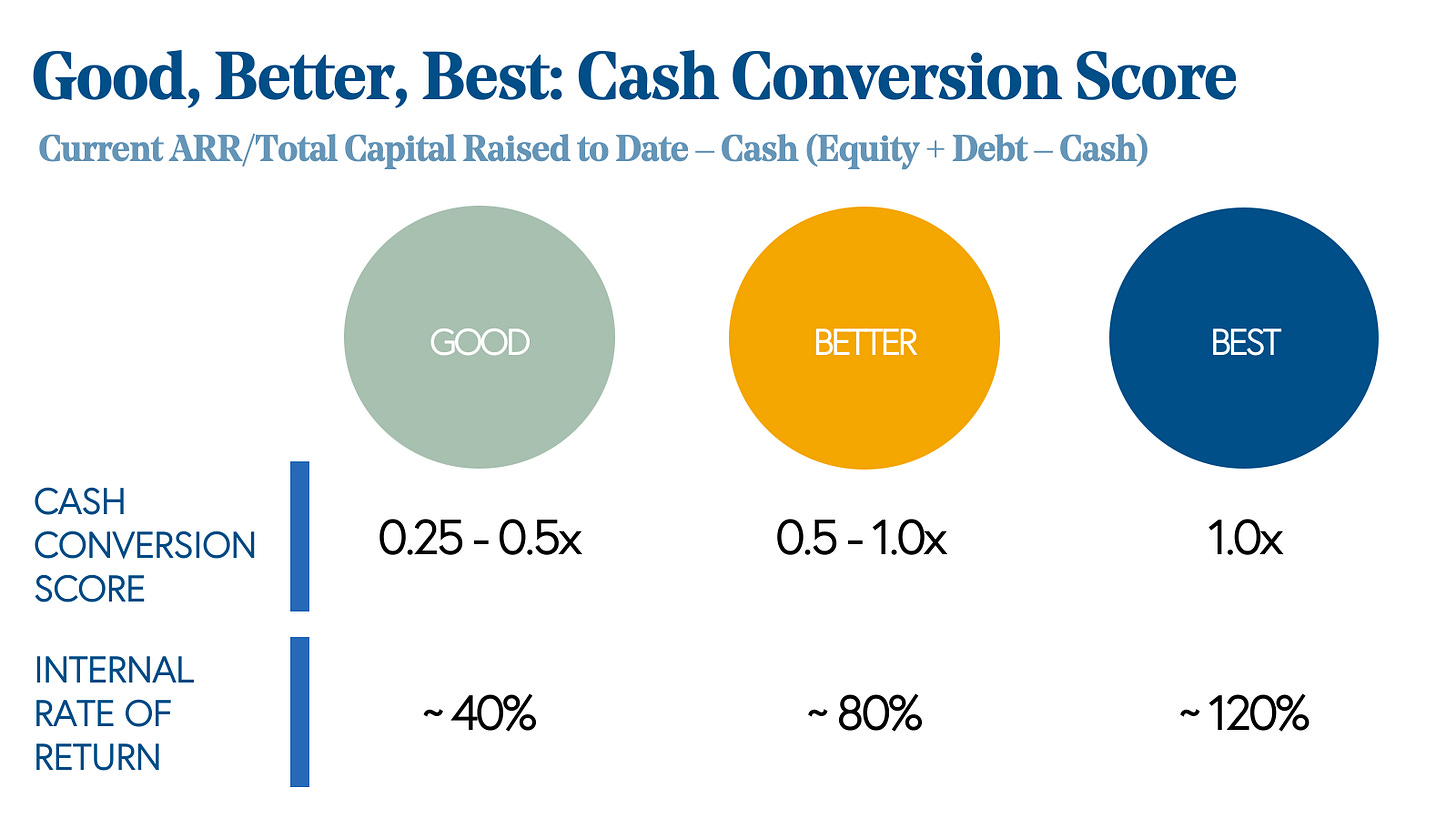What's 🔥 in Enterprise IT/VC #161
Happy 🦃 to all who celebrated! I hope you all spent some wonderful time with family and friends and had a chance to reflect on all of the things for which you are grateful. As we enter the weekend, the one thing I’ve been thinking about is the zoo that is AWS re:invent. Many founders and infrastructure VCs will make the trek to Vegas to see what new products AWS will be launching and what companies or sectors may be destroyed overnight. While none of us really go to the show, the networking is incredible and the energy palpable.
This week I found the most interesting articles about what makes successful people. Nature did a study driven by data on what separates winners from losers and ultimately it’s not based on failure but learning from them. Paul Graham lays out his theory which is all about having “a disinterested obsession with something that matters.” This can be on any topic and as we back founders on day one with nothing more than an idea, it helps that the problem they are solving is one of these obsessions 😃. Finally with all of the news on massive fundraisings and unicorn valuations, I recommend you read Bessemer Venture Partners’ report on what a best in class Cash Conversion Score is and why it matters.
If you like the new format or content, please share and ❤️ above!
Scaling Startups
Using big data to understand what separates winners from losers and why failure is a prerequisite for success with one important caveat:
And what ultimately separates the winners from the losers, the research shows, certainly is not persistence. One of the more intriguing findings in the paper, published this week in Nature is that the people who eventually succeeded and the people who eventually failed tried basically the same number of times to achieve their goals.
It turns out that trying again and again only works if you learn from your previous failures. The idea is to work smart, not hard.
Paul Graham nails it on the recipe for genius. I like to sometimes ask the question what are you a geek about? I mean this in the best sense of the word, I want to know what you are obsessed with and why. It can be anything, a movie, book, bus ticket collections, working out, etc but it’s nice to understand true passion for a topic and an endless curiosity and pursuit that is self guided because you get enjoyment out of it. Of course when we back founders, we love knowing that one of those obsessions is related to the problem they are solving!
If I had to put the recipe for genius into one sentence, that might be it: to have a disinterested obsession with something that matters…But if you look at the way great discoveries are made, that's not what happens. Darwin didn't pay closer attention to individual species than other people because he saw that this would lead to great discoveries, and they didn't. He was just really, really interested in such things.
Darwin couldn't turn it off. Neither could Ramanujan. They didn't discover the hidden paths that they did because they seemed promising, but because they couldn't help it. That's what allowed them to follow paths that someone who was merely ambitious would have ignored.I’ve been obsessed with the Mandalorian and Baby Yoda so had to tweet something out 😃
How do you define culture and values as companies scale? What is the balance between values that sound good versus ones that can be operationalized? Dipti Salopek who is VP People at Snyk shares what they came up with at Snyk.
The challenge with values is often not in defining them or buying into them, but in holding ourselves accountable to them every day. On any given day, I see our Snykers grappling with these decisions: How do I “ship it” without compromising quality? How do I “care deeply” and still give tough feedback? With our rapid growth, with our ever-rising bar of expectations, our values will be put to the test constantly. But it’s in encountering these decisions in our day-to-day work, that we bring our values to life.
The goal is not to raise as much capital as possible but to build a super scalable and cash efficient business. As cloud companies raise more and more dollars, it’s important to take a step back and understand the cash efficiency and return on invested capital in a meaningful way. Bessemer Venture Partners shares their latest good, better, best scores.

🤣 Understanding VC Doublespeak - a handy chart to translate what a VC says like “I’m thrilled to….” which translates to “I’m socially obligated to share this…”
Enterprise Tech
Chetan from Benchmark nails it again. CIOs are inundated with email drip campaigns and endless voicemails. When they need something it’s based on asking their direct reports whose team may be using some open source or bottoms up adopted product, Google search, word of mouth, or from some of their VC friends (hint: that’s what we spend a lot of our time doing) as a trusted filter.
Interesting post from Charles Ferguson on the Cloud versus Open Source debate and who wins. I believe that it is still early as one can argue that AWS helped MongoDB and Elastic versus hurting it initially but we’ll know more in the long run.
Who remembers Yahoo Pipes? It was the first low-code, no-code product and absolutely amazing at the time.
Keeping the lights on ensuring 5 9s availability for applications is getting harder and harder as systems become more distributed. If interested in incident response and how to improve, sign up for Nora Jones (ex-head of Chaos Engineering at Slack) to learn more about the best practices
What are the biggest innovations of open source and cloud over the last 10 years? Matt Asay has a great 10 year retrospective, one which makes us wonder how we even had no clue that Github would change development forever. As he mentions, the combination of open source and cloud is what is super powerful.
👇🏼
Open source licensing and swipe-and-go access to cloud hardware have opened up developer productivity in ways that might have been faintly visible in early 2010 (AWS was started in 2006, after all) but weren’t realized until well into the decade.
Kubernetes growing super fast according to Datadog - 45% of organizations running containers now use #kubernetes. Read on for more stats on real-world container use.

Markets
Another Sky is Falling article from the WSJ about how “Silicon Valley Adjust to New Reality as $100 Billion Evaporates.” It truly is painful but the examples are mostly consumer with WeWork and Uber as the headliners. The WSJ adds in UIPath but truly I’m not sure what the issue is on that one as the RPA market is growing super fast and UIPath has a big share of that. When a company grows as fast as UIPath, it’s inevitable that it has to make some course corrections and changes over time. See more from Forrester commentary. My point is enterprise tech founders and investors, let’s stay cautious but if the numbers merit, keep growing your business.
Great companies can be built anywhere and why our first 5 of 9 investments in boldstart iv have an international engineering HQ on day one
Traxn has put together the Top Emerging Cybersecurity Startups list. It’s a great group with Illumio and DarkTrace as Unicorns and awesome to have 3 of my firm’s (boldstart) listed under “Soonicorns” - BigID, Snyk, and Security Scorecard.





